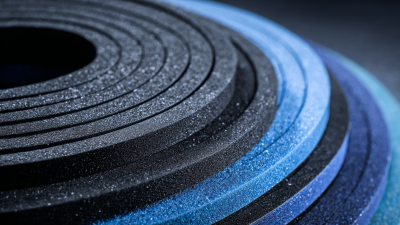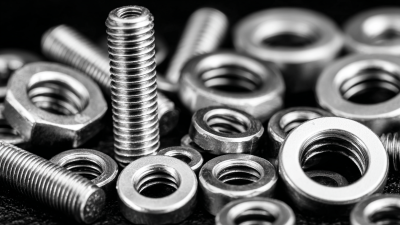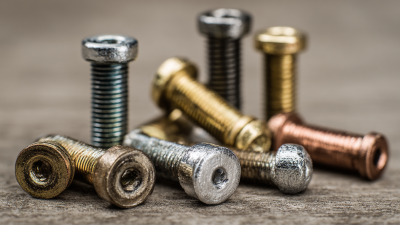When it comes to global sourcing, finding the right components is crucial for the success of your manufacturing processes, and threaded rivets are no exception. These versatile fasteners not only provide strong interconnections between materials but also enhance the durability and integrity of the finished product. In this blog, we will explore the seven best threaded rivets currently available on the market, each carefully selected based on their performance, reliability, and suitability for various applications. Whether you are sourcing for automotive, aerospace, or construction industries, understanding the unique features of different threaded rivets can help streamline your supply chain and improve operational efficiency. Join us as we delve into tips and insights that will elevate your sourcing strategies and ensure you make informed choices tailored to your specific needs.
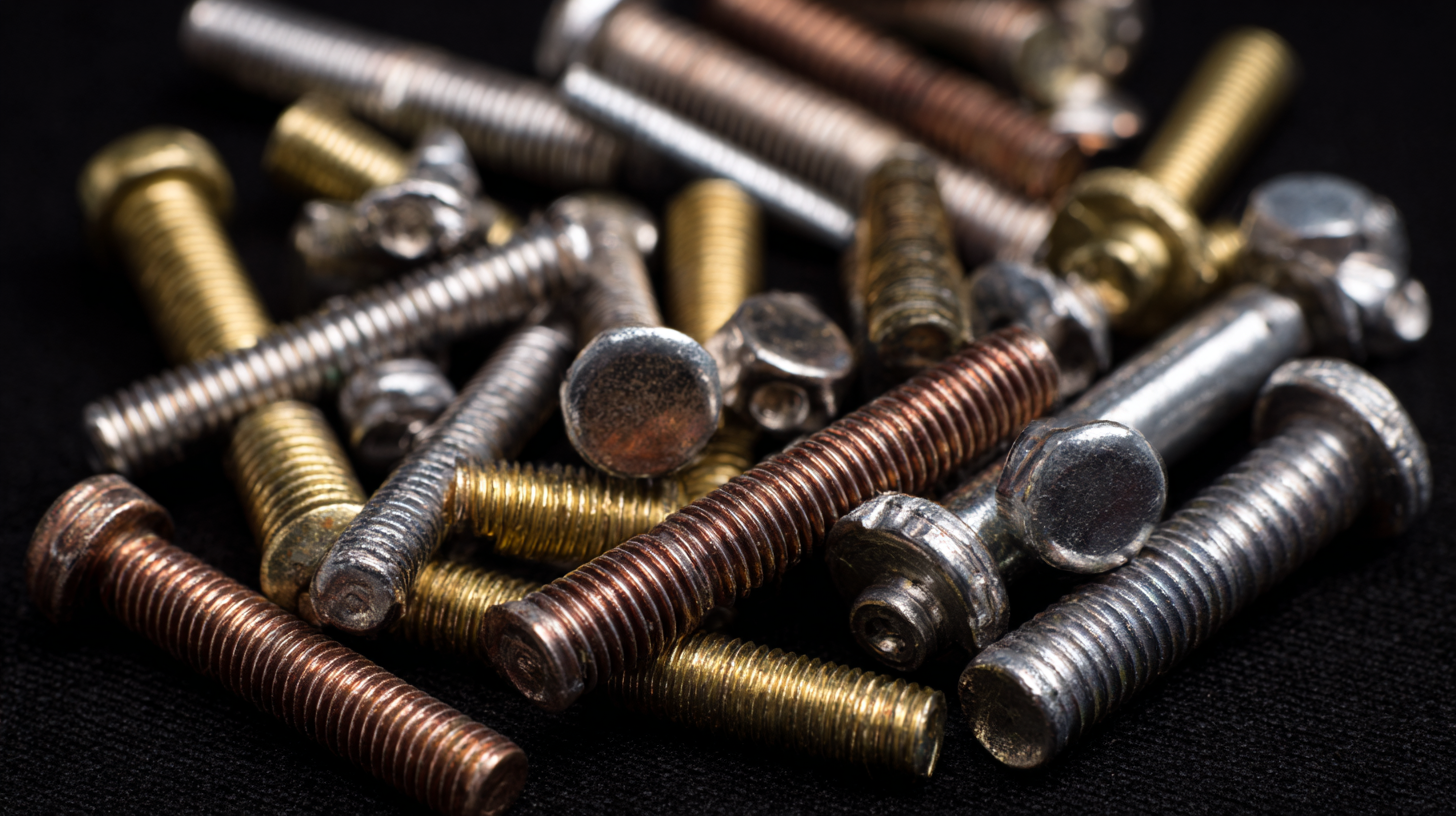
When it comes to selecting the right type of threaded rivets for your projects, understanding the specific requirements of your application is crucial. Threaded rivets come in various designs, materials, and sizes, each tailored for different purposes. For instance, if your project involves metal-to-metal fastening, consider using steel or aluminum threaded rivets, as these materials provide strength and durability. Conversely, for lighter materials or projects that require corrosion resistance, nylon or plastic threaded rivets may be more suitable.
Furthermore, it’s essential to evaluate the environmental conditions that your finished product will face. High-temperature applications may necessitate specialized threaded rivets that can withstand extreme heat without degrading. Additionally, the load-bearing capacity is another critical factor; ensure that the chosen rivet can handle the forces it will encounter in use. By carefully considering these aspects, you can choose the most appropriate threaded rivets that meet the demands of your global sourcing needs, ensuring the success and longevity of your projects.

When sourcing threaded rivets, understanding key features is crucial to meet specific application requirements. One of the most important considerations is the material of the rivet. According to a report by the Global Fasteners Market, steel and aluminum are the most commonly used materials due to their strength and corrosion resistance. For applications in harsh environments, consider stainless steel or coated options to enhance durability and performance.
Another vital factor to assess is the thread design and size. A study from TechSci Research indicates that the global demand for threaded fasteners is increasing, driven by their superior holding capacity compared to non-threaded alternatives. Ensuring compatibility with existing parts and understanding the shear strength and tensile strength of the rivets will help in making informed sourcing decisions. Additionally, examining certifications and standards, such as ISO and ASTM, can provide reassurance regarding the reliability and quality of the rivets selected for your projects.
When considering global sourcing needs for threaded rivets, it's essential to connect with top suppliers who understand the intricacies of the automotive and industrial fasteners market. With projections indicating a significant growth trajectory—from $24.08 billion in 2024 to $37.11 billion by 2032 in the automotive fasteners segment—suppliers must remain competitive by offering specialty fasteners made from high-performance materials like titanium and brass. These materials not only enhance durability but also cater to diverse application scenarios, ensuring optimal performance under various conditions.
The industrial fasteners market is also experiencing robust growth, expected to reach $110.24 billion by 2025. The demand for reliable and innovative fastening solutions, including threaded rivets, is driving suppliers to innovate and expand their product offerings. Companies that can navigate these market dynamics and deliver quality products are poised to thrive in a landscape that increasingly values both material excellence and versatile application capabilities. Engaging with leading manufacturers in this space can ensure manufacturers and assemblers have access to the best threaded rivets that meet their global sourcing needs effectively.
| Supplier Region | Material | Diameter (mm) | Length (mm) | Pull-Out Strength (N) |
|---|---|---|---|---|
| Asia | Aluminum | 4.0 | 10.0 | 600 |
| North America | Steel | 4.8 | 12.0 | 800 |
| Europe | Brass | 5.0 | 15.0 | 750 |
| South America | Plastic | 3.2 | 8.0 | 400 |
| Australia | Titanium | 6.0 | 20.0 | 900 |
| Africa | Aluminum | 4.5 | 11.0 | 620 |
| Middle East | Steel | 5.5 | 14.0 | 850 |
When selecting the best threaded rivets for various applications, understanding their performance characteristics is crucial. A comparative review of available products helps to identify the strengths and weaknesses of each option. For instance, performance metrics such as tensile strength, shear strength, and resistance to fatigue are vital for ensuring the reliability of riveted joints. Recent studies in mechanical engineering highlight the importance of stress concentration factors in optimizing the design of rivet joints, indicating that a reduction in these factors can lead to improved performance and longevity.
Furthermore, when exploring new products in the market, it's essential to consider how innovative designs can influence overall efficiency and application versatility. Just as engineers are examining the static and fatigue performance of non-circular rivet joints through numerical modeling and preliminary tests, sourcing industries must evaluate threaded rivets based on real-world performance data. This focus on empirical comparisons not only aids in making informed purchasing decisions but also fosters innovation by encouraging manufacturers to adopt advanced engineering solutions that enhance the end user's experience.
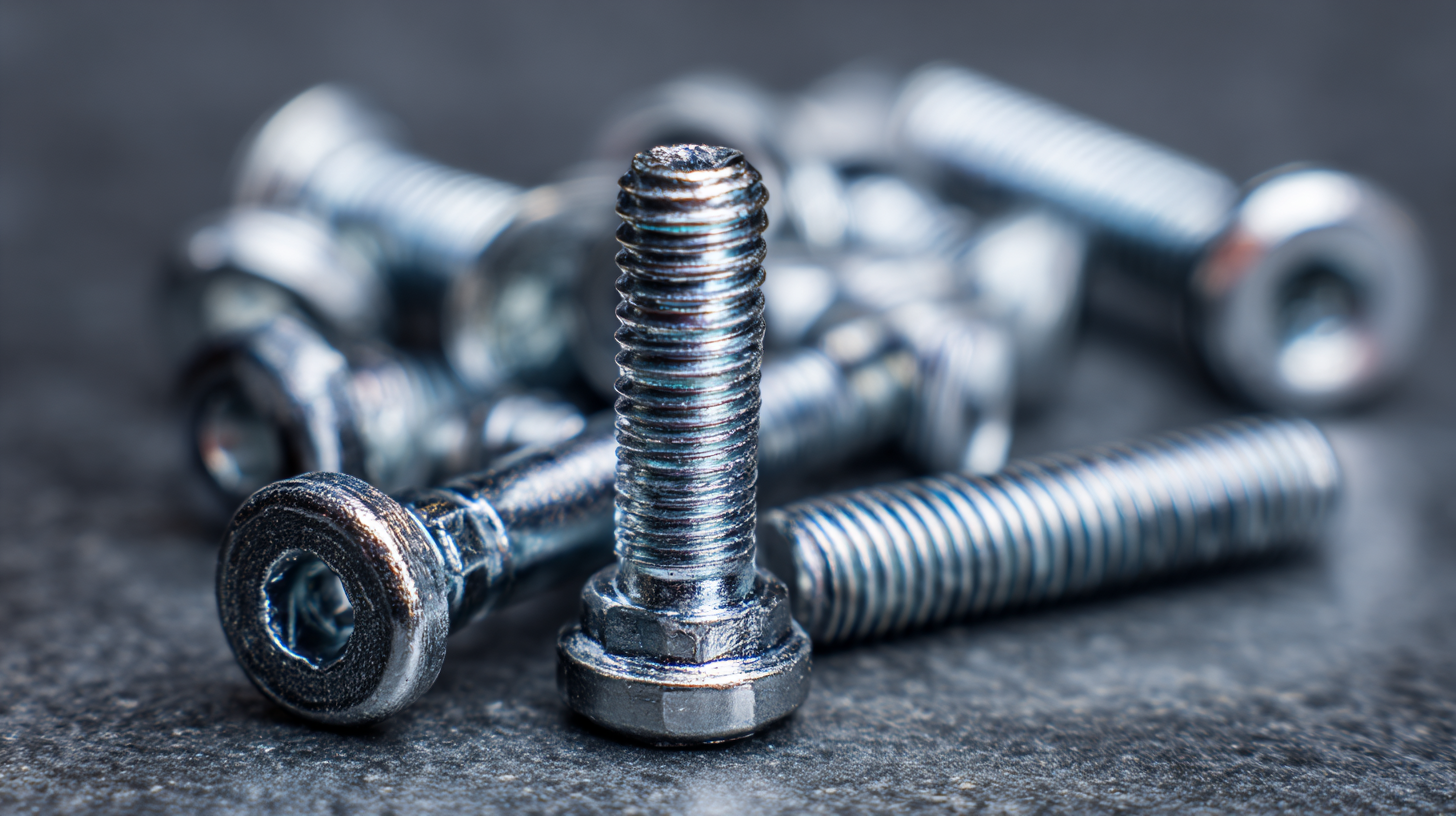 When it comes to ensuring the optimal performance of threaded rivets, installation techniques play a crucial role. According to a report by the Institute of Advanced Manufacturing, improperly installed rivets can lead to failure rates as high as 25%, significantly impacting project longevity and safety. To mitigate these risks, it's essential to follow precise installation methods that cater to the type of materials being joined. For example, when working with aluminum components, a consistent torque application is vital to prevent stripping the threads, which could compromise the integrity of the joint.
When it comes to ensuring the optimal performance of threaded rivets, installation techniques play a crucial role. According to a report by the Institute of Advanced Manufacturing, improperly installed rivets can lead to failure rates as high as 25%, significantly impacting project longevity and safety. To mitigate these risks, it's essential to follow precise installation methods that cater to the type of materials being joined. For example, when working with aluminum components, a consistent torque application is vital to prevent stripping the threads, which could compromise the integrity of the joint.
Tip: Always ensure that the installation surface is clean and free of debris. This small, often overlooked step can greatly enhance the load-bearing capacity and overall durability of the riveted joint. Additionally, consider using a torque wrench to achieve the recommended specifications without over-tightening, which can lead to fracture or misalignment.
Further emphasizing the importance of technique, studies have shown that using a pilot hole can improve the installation accuracy of threaded rivets, reducing the chances of material deformation. Installing rivets at the correct angle also influences the effective load distribution, which can enhance performance under stress. By adhering to best practices in the installation phase, users can expect improved reliability and efficiency in their riveted structures.

